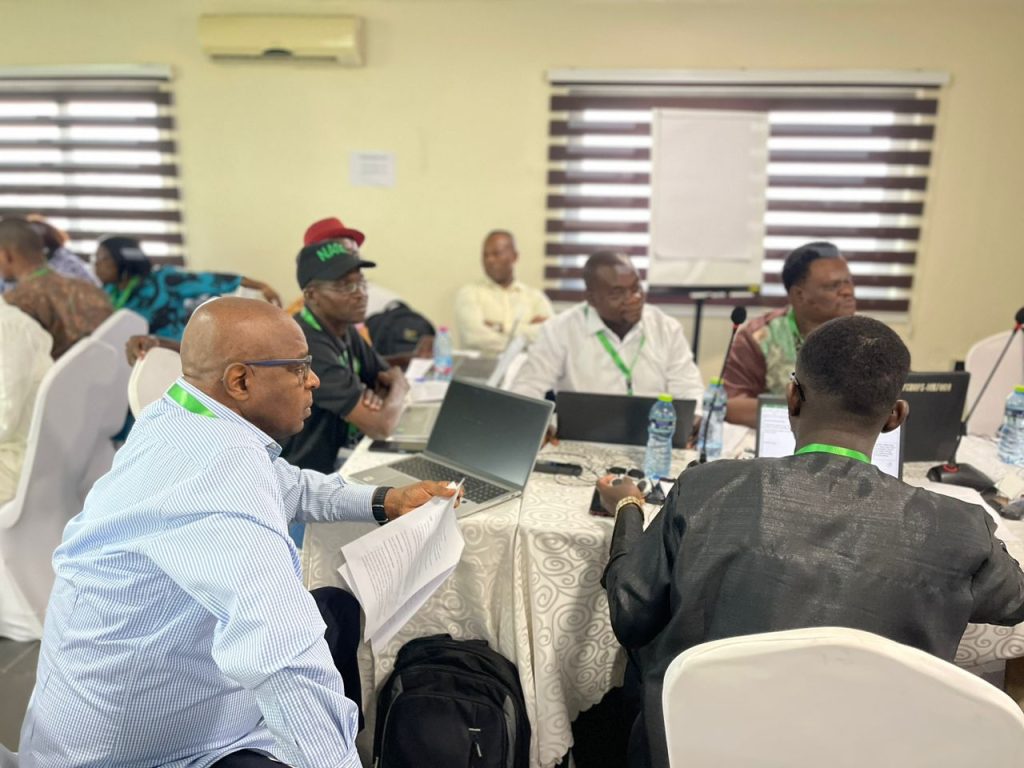Accra, June 4, GNA -CAB International, (CABI), a centre for agriculture and biosciences, with funding from the Food and Agriculture Organisation (FAO) held a five-day training workshop for officers from National Plant Protection Organisations in West and Central Africa.
They were taken through a Horizon Scanning process and exposed to a decision-support tool that helped them to identify and prioritise potential pests that can threaten the two sub-regions through agricultural commodity trade and cross-border movement of planting materials.
Dr Koku Agboyi, a Senior Scientist in Invasive Species Management at CABI, said the workshop was to help strengthen the capacity of officers from West and Central Africa in early warning and response systems for invasive species that threaten agriculture.
The participants were from the National Plant Protection Organization from 21 different countries within the West and Central Africa sub-regions.

All 15 countries of West Africa sent representatives to the training. For Central Africa, participants were from Cameroon, Chad, the Democratic Republic of Congo, the Republic of Congo, Equatorial Guinea and Gabon.
Dr Agboyi said the key objective of the workshop was to develop a priority invasive pest list for the two sub-regions.
“Invasive species are causing so many problems, economic and social, to the two sub-regions. They are affecting trade and even crop yields. And now, instead of always managing invasive species, it’s good to prevent new ones from entering the sub-regions.
“Most of the time, the countries’ response systems are weak. And we want to help them to develop a priority invasive pest list so that they can conduct different activities or actions like surveillance to detect pests entering the country,” Dr Agboyi added.
“Once they have their priority pest list, they can develop a contingency plan and thus, will be prepared before new invasive species come in.”
He said the training conducted together with his colleagues, Dr Joseph Mulema, Patrick Beseh and Dr Hettie Boafo, would also allow the countries to beef up inspections at entry points to prevent the pest from entering the sub-regions.
He also noted that the impact of early detection of pests on food security is great as it would help the countries to avoid spending huge sums of money to buy products that are distributed to farmers to control the pests.
“This way, the millions of dollars that would have been spent on pest management could be invested in other national priorities like roads, schools, other development projects,” he said.
“The Invasive species problem also comes with trade concerns. Once you have the pest in your country, you cannot sell or trade with some countries because of the fear of introducing that invasive pest to their country through the traded produce .”
The identification of pest threats and application of appropriate measures to prevent the introduction of invasive species to West and Central Africa and other sub-regions is critical for protecting domestic crop production.
It also facilitates the safe import of plant commodities into the sub-regions and trade between the member states.
Dr. Kazeem Adewale, a participant from Nigeria Agricultural Quarantine Service, said the training was very important in the face of the African Continental Free Trade Area Agreement, which is seeking to boost trade among countries on the continent.
“This training is relevant for us because at the moment, you know, plant materials have been traded across the regions and with the coming in force of the African Continental Free Trade Agreement, sooner or later these materials will move without much restriction,” he said.
He said there was the need to harmonize regulations and identify particularly invasive species that may cause problems for all of us in the West and Central Africa regions.
“So, this particular training is very important that once we identify these invasive species that are not present in the region, we can come in to bring in properly harmonised regulation to assist us in ensuring that this particular pest, invasive species do not come into our region and then affect our people,” he said.
GNA